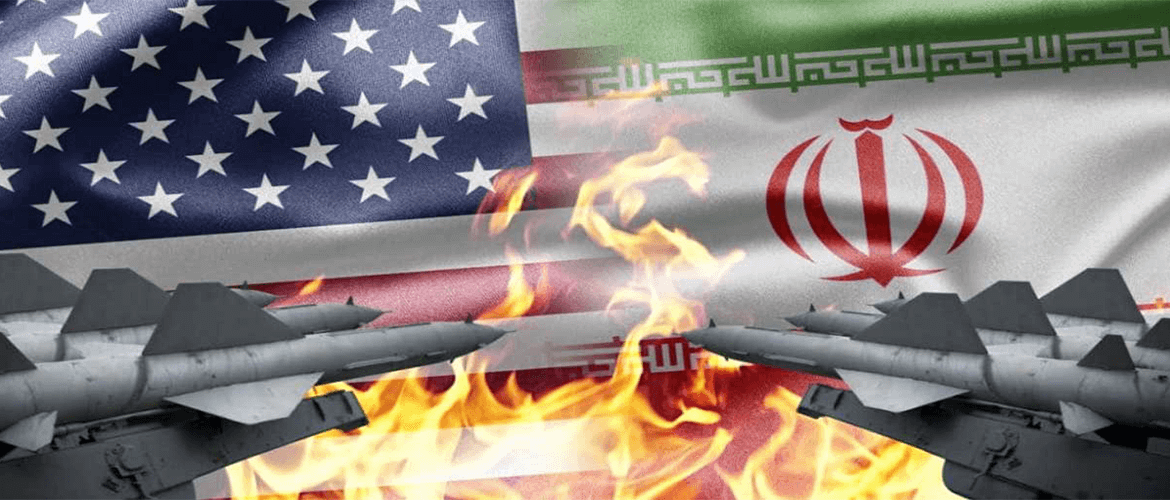Stoking the Fires in a Volatile Middle East
July 14, 2020 | Expert Insights

The impact of the pandemic in the Middle East has been severe, sending shock waves across the medical, political, economic, and socio-cultural landscape. Home to some of the worst humanitarian conflict zones in the world, the impact of a pandemic here can cause major geopolitical upheaval. The virulent outbreak needs to be contained, and effective political solutions must evolve to deal with the aftershocks of the pandemic.
Theorising and crafting solutions for the post-COVID Middle East involve understanding the historical problems in the region -- flourishing authoritarianism and autocracy in several countries, and systemic instability, civil unrest, chronic unemployment, and radical Islamism in others. But now, adding to this long list, is the widespread effects of the pandemic.
Mirroring this view, California State University professor Ibrahim Al-Marashi in the TRT Worldsaid the pandemic would “accelerate not reverse pre-existing regional, political, economic and sociological dynamics, particularly instability”.
Countries in the Middle East, with differing capabilities and widely divergent health systems and governance structures have responded differently to the virus. In Yemen, Syria, Iraq and Libya -- already struggling under overlapping political, economic and humanitarian crises -- healthcare systems have been considerably strained. Saudi Arabia, Israel, and Turkey have fared relatively better at containing the virus.
COVID IN CONFLICT ZONES
A major consequence of protracted conflicts is the refugee flows they create. Internally displaced persons (IDPs) live in makeshift camps across the Middle East, with little or no access to facilities. Examples include camps housing Palestinian refugees in Sabra and Chatila in Lebanon; camps across Syria and the Turkish safe zone that shelter the families of ISIS fighters and those fleeing the war in Syria; and refugees across the densely populated West Bank, Gaza Strip, and in Jordan. With such a large number of IDPs across the region, healthcare and UN experts predict the spread of the pandemic will be much more virulent and disruptive. Migrants and foreign workers, particularly across the Gulf States, are also highly at risk.
According to Emile Nakleh, a research professor and coordinator of the National Security Programs and a retired Senior Intelligence Service Officer, CIA, “COVID-19 has laid bare the fissures in Middle East societies. Regimes have exploited the onslaught of the pandemic to favour the affluent and ignore the marginalised segments of society which have been hit very hard by the pandemic.” Ethnic and sectarian regimes seen as a threat to the existing governments -- the Kurds in Turkey, and the Shia in the UAE -- because of the nature of their marginalisation, are at greater risk.
A major offshoot of socio-economic inequity in a pandemic is the outbreak of violent protests. The dramatic collapse in oil prices, economic fragmentation, and regime instability have led to civil unrest, further compounding political instability. In Lebanon and Syria, violent protests in defiance of lockdown measures have led to a brutal clampdown on dissent.
AUTHORITARIAN CLIMATE TAKES SHAPE
Increasingly, authoritarian measures to contain mass protests have led to an acceleration of autocracy in set authoritarian regimes, where governments have sought repressive steps to quell public anger over inadequate health systems and governmental unpreparedness against the pandemic. Saudi Arabia, the UAE, and Egypt have used the virus as a front to stamp state authority and enhance regime control: from expanding emergency law and executive power in Egypt, to the UAE levying fines for any contradiction against official statements on the pandemic.
Radical Islamists and armed insurgents are using the pandemic as a cover to push forward their cause. Examples include the resurgence of ISIS and its regional offshoots in Syria and Iraq, and armed insurgents in Northern Sinai.
COVID-19 has also caused a power vacuum in the region, forcing traditional superpowers like the U.S. and Russia to recalibrate their involvement in the region as they strive to tackle the pandemic and its collateral damage in their own countries. This vacuum has shifted the power balance in the region, with Turkey emerging as a heavyweight, having won multiple victories against the putschist General Khalifa Haftar in Libya and against the Kurds in Syria and Iraq.
Unless the pandemic is effectively controlled, political instability will continue to characterise the Middle East. Systemic political and economic restructuring and effective institutional steps by the UN and the EU need to be taken to engage constructively with the region.
ASSESSMENT
- Unless COVID-19 is effectively contained, and economic growth is restored, the socio-economic strain will lead to further violent protests in the region. With increasing authoritarianism, securing political stability will be a difficult and long-drawn-out process.
- Countries, with institutional aid and constructive engagement, will be able to deal with the pandemic better and restore their economies (Lebanon with the loan from the IMF, and Yemen with aid from the UN). In this scenario, an Arab Spring 2.0 will actually be more effective in bringing about political stability. Diminishing proxy involvement in conflicts in the region might be a boon, as well as calling for ceasefires to existing conflicts, helping countries deal with the pandemic and their polities.
While the primary focus will be on the provision and restructuring of healthcare facilities, any solutions post-pandemic have to be crafted against the backdrop of endemic and localised problems in the region.








Comments